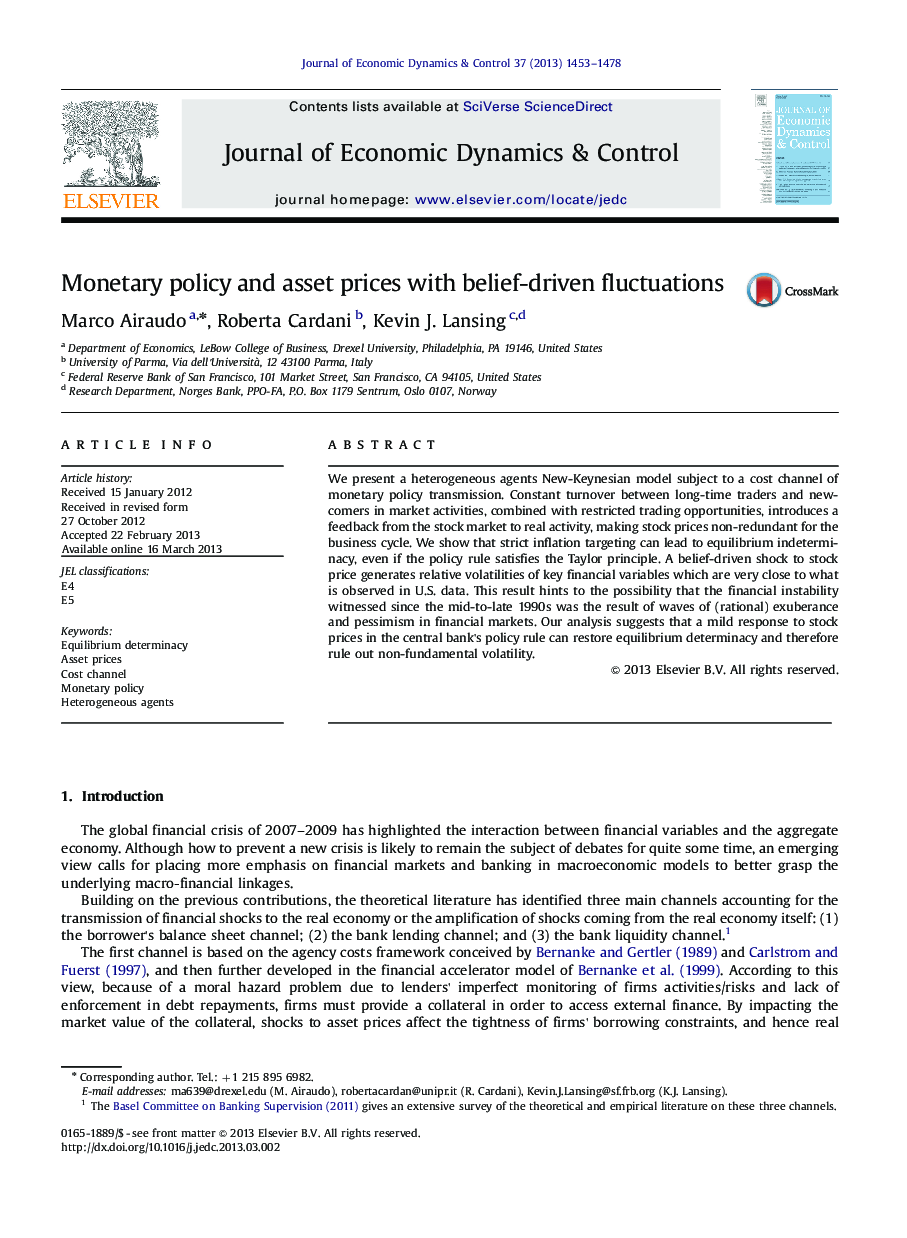| Article ID | Journal | Published Year | Pages | File Type |
|---|---|---|---|---|
| 5098793 | Journal of Economic Dynamics and Control | 2013 | 26 Pages |
Abstract
We present a heterogeneous agents New-Keynesian model subject to a cost channel of monetary policy transmission. Constant turnover between long-time traders and newcomers in market activities, combined with restricted trading opportunities, introduces a feedback from the stock market to real activity, making stock prices non-redundant for the business cycle. We show that strict inflation targeting can lead to equilibrium indeterminacy, even if the policy rule satisfies the Taylor principle. A belief-driven shock to stock price generates relative volatilities of key financial variables which are very close to what is observed in U.S. data. This result hints to the possibility that the financial instability witnessed since the mid-to-late 1990s was the result of waves of (rational) exuberance and pessimism in financial markets. Our analysis suggests that a mild response to stock prices in the central bank's policy rule can restore equilibrium determinacy and therefore rule out non-fundamental volatility.
Related Topics
Physical Sciences and Engineering
Mathematics
Control and Optimization
Authors
Marco Airaudo, Roberta Cardani, Kevin J. Lansing,
